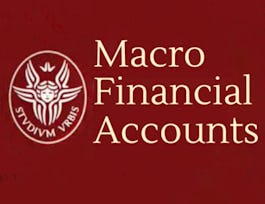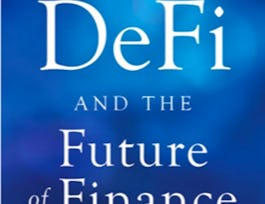This course explores the developments that have fueled the emergence of fintech companies around the world. Following the changing regulatory environment, especially since the 1997 Asian and 2008 global financial crisis, governments have enacted far-reaching new financial regulations for safeguarding financial stability. However, banks and financial institutions have found it increasingly difficult to be profitable in these new regulatory environments. Technology is taking leaps forward in artificial intelligence and blockchain and this has created new opportunities for fintech entrepreneurs.



Financial Regulation in Emerging Markets and the Rise of Fintech Companies
This course is part of Fintech Startups in Emerging Markets Specialization

Instructor: Co-Pierre Georg
Sponsored by IEM UEM Group
11,497 already enrolled
(158 reviews)
What you'll learn
How changes in the global financial regulatory environment have come to drive fintech innovations.
How technology, such as artificial intelligence and blockchain, make possible the rise of fintech companies.
Details to know

Add to your LinkedIn profile
12 assignments
See how employees at top companies are mastering in-demand skills

Build your subject-matter expertise
- Learn new concepts from industry experts
- Gain a foundational understanding of a subject or tool
- Develop job-relevant skills with hands-on projects
- Earn a shareable career certificate


Earn a career certificate
Add this credential to your LinkedIn profile, resume, or CV
Share it on social media and in your performance review

There are 4 modules in this course
So you’re interested in the opportunities for fintech? I’ll be taking you back to the key events in the financial crises of the late 1990s and early 2000s in order to understand the growth of fintech in emerging markets. We’ll be looking at the basic mechanisms behind banking and what happened when the financial markets crashed. It’s essential for us to become familiar with the new financial regulations and how they create opportunities and constraints for fintech today. Over the four weeks of the course, you will be invited to think about how new financial regulations have spurred the rise of fintech companies in emerging economies.
What's included
12 videos4 readings3 assignments1 discussion prompt
We dive into details of financial systems this week - looking at how banks function and are regulated. Using the Great Depression as a starting point, I describe what caused the collapse of banks a century ago, to reflect on the impact of the post-depression financial regulations that followed. These regulations included the establishment of international financial institutions that controlled current monetary policies. Being familiar with the current financial regulatory framework and where it comes from provides the basis for understanding the disruptions from the fintech innovations we will be covering next week.
What's included
12 videos3 readings4 assignments1 peer review
We've now reached the heart of the course - looking at the context of fintech in emerging economies and what makes them different. To begin we will look at Initial Coin Offerings (ICO) which are one of the key mechanisms used fintech companies to finance themselves. We are going to focus particularly on South Africa, China, and Brazil, and I have a number of interviews with people involved in banking, financial regulation and fintech from these countries.
What's included
12 videos3 readings3 assignments
In this last week of the course, we look at applications of fintech in emerging economies. I have selected two widely adopted applications to explore: peer-to-peer lending and remittances. Because of the costs of banking and the exclusion of millions from formal banking systems, entrepreneurs have been exploring innovative mechanisms to finance business by borrowing from peers. Fintech offers a fast and secure mechanism to transfer remittances that are being widely used across the world - and we will look at some examples. I also asked people from the banking sector to describe how large formal financial institutions are considering the impact of blockchain and other new technologies. At the end of this week, you will have a chance to apply what you’ve learnt in a final assignment.
What's included
13 videos2 readings2 assignments1 peer review
Instructor

Offered by
Why people choose Coursera for their career




Learner reviews
158 reviews
- 5 stars
71.51%
- 4 stars
22.78%
- 3 stars
3.16%
- 2 stars
1.89%
- 1 star
0.63%
Showing 3 of 158
Reviewed on Jan 30, 2019
The course is very informative and groundbreaking.
Reviewed on Jul 29, 2022
Thoroughly enjoyed this course. It was well thought out and planned for anyone looking to learn about fintech. Would definitely recommend for any beginners or newcomers.
Reviewed on Aug 2, 2024
I loved the course on how it improved my overall skills
Recommended if you're interested in Business

EDHEC Business School

Sapienza University of Rome

Duke University

McMaster University

Open new doors with Coursera Plus
Unlimited access to 10,000+ world-class courses, hands-on projects, and job-ready certificate programs - all included in your subscription
Advance your career with an online degree
Earn a degree from world-class universities - 100% online
Join over 3,400 global companies that choose Coursera for Business
Upskill your employees to excel in the digital economy


